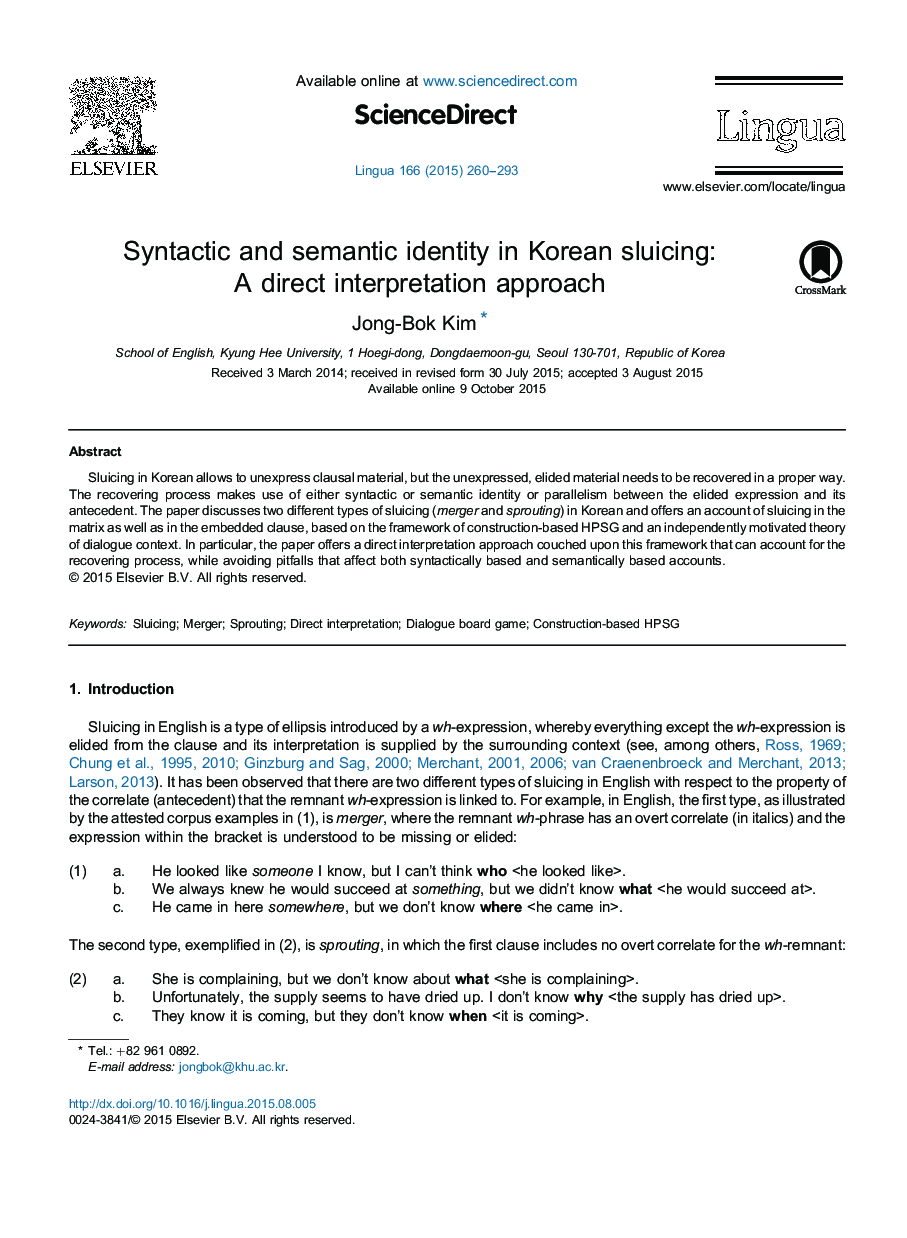| Article ID | Journal | Published Year | Pages | File Type |
|---|---|---|---|---|
| 10461120 | Lingua | 2015 | 34 Pages |
Abstract
Sluicing in Korean allows to unexpress clausal material, but the unexpressed, elided material needs to be recovered in a proper way. The recovering process makes use of either syntactic or semantic identity or parallelism between the elided expression and its antecedent. The paper discusses two different types of sluicing (merger and sprouting) in Korean and offers an account of sluicing in the matrix as well as in the embedded clause, based on the framework of construction-based HPSG and an independently motivated theory of dialogue context. In particular, the paper offers a direct interpretation approach couched upon this framework that can account for the recovering process, while avoiding pitfalls that affect both syntactically based and semantically based accounts.
Related Topics
Social Sciences and Humanities
Arts and Humanities
Language and Linguistics
Authors
Jong-Bok Kim,
